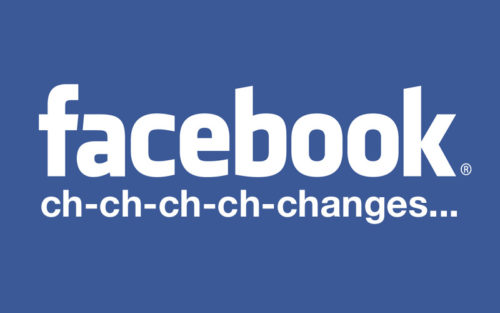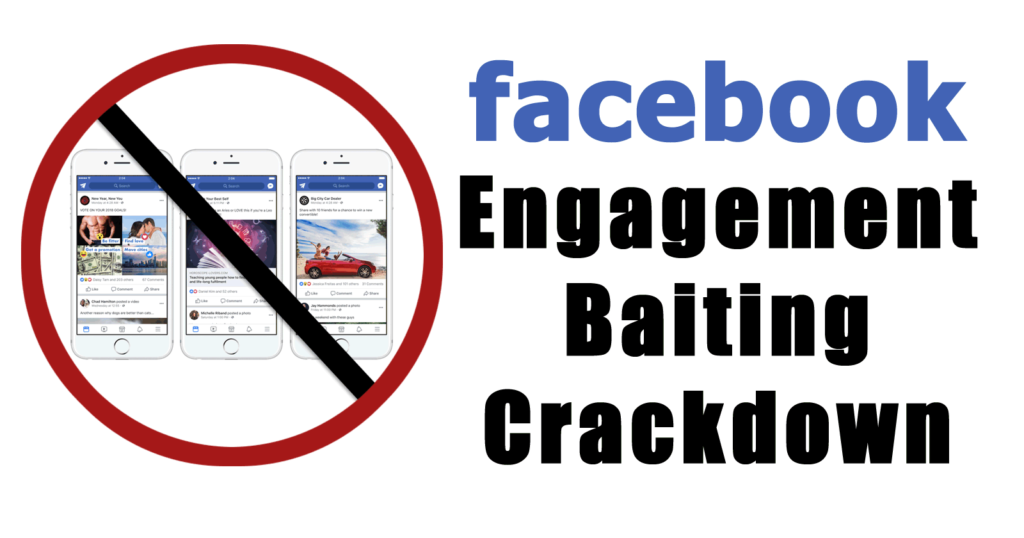More Facebook Algorithm Changes Will Bring Struggles For Those Unprepared
The next time you think about posting “Which version of my new book cover do you like the most? A, B, or C?” on your brand page, you may want to think twice. Here is why, and it is only the tip of the iceberg.
Facebook’s algorithms are highly likely to classify your post as so-called “engagement bait.” Starting this week, Facebook will begin demoting individual posts from people and pages that use engagement bait. In other words, a post where you ask your readers for a vote on a post may be “punished” by Facebook.
How Engagement Bait Works
Engagement bait is a tactic to create Facebook posts that entice people to interact with the post through likes, shares, comments, and other actions. The purpose is to boost engagement and get greater reach on News Feeds artificially. We have all seen these types of posts. Some are annoying; some are simply stupid, some are even fun — but Facebook considers them all spammy.
They typically fall into five categories:
React baiting: Asking people to react to the post (includes like, love, haha, wow, sad, and angry).
Comment baiting: Asking people to comment with specific answers (words, numbers, phrases, or emojis).
Share baiting: Asking people to share the post with their friends.
Tag-baiting: Asking people to tag their friends.
Vote baiting: Asking people to vote using reactions, comments, sharing, or other means of representing a vote.
Well, we have probably all been guilty of this at some point (at least I have.) But from now on, posts and pages that use any such tactic will be demoted.
People have told Facebook that they dislike spammy posts that lure people into interacting with likes, shares, comments, and other actions. To battle these tactics and promote more authentic engagement, Facebook teams have reviewed and categorized hundreds of thousands of posts to inform a machine learning model (artificial intelligence) that can recognize different types of engagement bait.
Latest News Feed Changes Overall Hit Author Pages Hard
But the issue for authors and publishers is not one about Facebook regulating clickbait. The fight against clickbait, fake news and engagement bait is one that has to be fought. But all these
measures come on top of recent Facebook algorithm changes that increasing diminish the organic reach of business pages on Facebook.
Remember: the news feed algorithm regulates whether your fans see the content you post on your business page.
In September, Facebook announced another change to the algorithm that determines what people see in the news feed. The Facebook headline was:
“News Feed FYI: Showing More Timely Stories from Friends and Pages.”
One way of showing timely content higher-up in the news feed is to show people stories about things that are trending as soon as they occur, so you can immediately know what your friends or favorite Pages are saying about the stories of the day.
In October, the social network officially launched its secondary news feed called Explore. This feed generally features posts from Facebook Pages users do not follow. The main news feed, meanwhile, hosts posts from friends and pages that users do follow. However, in six test countries, Facebook removed page feeds (unless paid) altogether from the users’ main news feed.
Then, November 14, Facebook published additional information about the algorithm changes directly impacting business pages:
“All of this means that Pages that post promotional creative should expect their organic distribution to fall significantly over time.”
In other words, if you write a post promoting your most recent book, only a fraction of your page fans or friends will see it. If your fans do not follow your page, your post is going to end up in the alternative news feed, not the main feed, if it shows up at all.
And if you do the math for an organic promotion, you immediately see where the problem is. This is an arbitrary example: 5% organic post reach times 10% click rate means only 0.5% of your fans will arrive at the Amazon page. If you then multiply with a 10% conversion rate, the book sales you are going to get are close to zero (0.1%). In other words, given these assumptions, you would need 2000 Facebook fans to generate 1 sale with a Facebook post relying on organic reach. Can your page do that right now?
Evolution Or Revolution?
Facebook, from its outset, has struggled with the seemingly opposing objectives. One is Facebook’s original purpose of “being a social network” where people see and share what they like (i.e., babies and kittens). The other goal is about maximising profits from advertisers who clog our news feeds with the latest buzz about their products and services. And that includes authors and publishers who buy ad space on Facebook to promote their books, clothing, and cleaning services.
It seems the pendulum between the competing objectives is currently swinging back towards Facebook’s purpose as a social network—not in a black white fashion, but to some extent.
According to an analysis by Parse.ly of referral traffic to over 2,500 sites, the world’s biggest social network Facebook has been pushing less and less traffic to content. Google officially reclaimed its spot as the top source of referral traffic.
But What About My Business Page On Facebook?
Wait a minute. Isn’t it the case that many authors were told that they should build up social media presence, particularly on Facebook? Many businesses have built Facebook pages for their brands, book series, or services. But over the last years, the organic reach of Facebook pages has reduced significantly.
Remember, organic reach is the total number of unique people who were shown your post through unpaid distribution. If you had 3,000 fans on your page and you reached 300 (10%) with a post, you could consider yourself lucky. And these days, the percentage is so much lower.
The fact is, Facebook wants you to pay for your reach. Facebook wants you to run ads and “boost” your posts.
And the cost of doing so is going up and up and up. Facebook does not even argue with that. David Wehner, CFO at Facebook recently commented:
“In Q3 [2017], the average price per ad increased 35%.”
But for small businesses such as indie authors and small publishers, there is also a question of affordability.
If the cost-per-click or cost-per-conversion continues to rise at the rate it currently does, the ROI of Facebook ads that try to send people to the Kindle Store to buy a $2.99 e-book is simply no longer there (if it ever has been.) Running ads will be by definition be an expense or luxury, not a way of generating a direct positive return from resulting book sales.
In other words, entrepreneurs will have to rethink how they can best reach their readers. If you solely rely on Facebook, you may want to review your strategy now.
Of course, Facebook will remain a key channel for time to come. But perhaps it is time for businesses to reconsider off-line promotions, putting more emphasis on list building, fan clubs and other means of engaging with current and potential readers. (No, I do not have the solution.)
The old rule in life holds so true in internet marketing: “Don’t put all your eggs in one basket.” Because when a giant starts moving just a little bit (in this case Facebook), it can cause an earthquake for the many “little fellows” around it.
Latest posts by Heidi Stephens (see all)
- Six Tips To Help You Design The Best Possible Facebook Graphics - April 17, 2018
- 5 Reasons You Need a Content Writer - April 10, 2018
- The Latest Facebook™ Hacks: The Security Breach 101 - April 4, 2018




